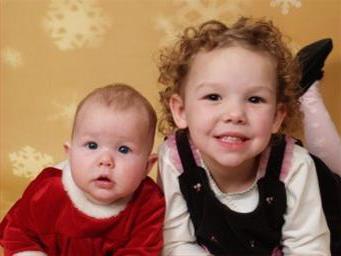MADISON, Wis. (AP) — Highlights of the two-year spending plan approved Friday by the Legislature's budget committee. It now heads to the state Assembly for consideration, which could take it up as soon as June 9. It must pass the Assembly and Senate in identical form, and be signed by Gov. Jim Doyle, before it becomes law.
TAXES AND FEES:
— No general sales or income tax increases.
— Creates a new tax on oil company revenues, along with a prohibition on them passing the tax along to customers at the pump.
— Increases cigarette taxes 75-cents per pack.
— Raises income taxes on households making more than $300,000 a year.
— Imposes up to a 75-cent fee per month on cell phone users that replaces a fee that expired in July.
— Diverts $20 million that was supposed to be returned to cell phone users in $5 checks to local governments to help pay for services and keep property taxes low.
— Raises boat registration fees 15 percent and creates a $15 nonresident boat sticker beginning in January 2010.
— Increases fees on solid waste disposal from $5.90 per ton to $13 per ton.
— Raises cost of background checks for handguns from $8 to $13.
— A new film incentive program, to replace the one Gov. Jim Doyle wanted to eliminate, would impose a $1.5 million annual cap on how much the state could offer over the next two years. After that, there would be no limit, but other changes attempt to more highly reward Wisconsin-based jobs and exclude from the benefit anyone making more than $250,000.
CRIME AND PUNISHMENT:
— Allows some felons to be released from prison earlier, among other reforms, designed to ease overcrowding, save money and better prepare inmates for life in the community.
— More criminals could have their records expunged. The possible age for expungement was raised from up to 21 to up to 25. And while only those convicted of misdemeanors are eligible currently, that would be expanded to cover some felonies, including drunken driving.
— Police could stop drivers for not wearing a seat belt. Currently, police can only issue a ticket for that offense if the driver is first pulled over for a different violation.
— Starting in 2011, every police department in the state would have to track the race of people they pull over to determine if racial profiling is occurring.
TRANSPORTATION:
— Sales taxes could increase up to 1 percent in Milwaukee County and a half-cent in Dane County to pay for commuter rail systems. The car rental tax in Kenosha, Racine and Milwaukee counties could increase from $2 to $14 in those counties to help pay for the so-called KRM high-speed rail line connecting the three cities.
— Cars and trucks would continue to carry two license plates. The governor proposed moving to just one plate, with no sticker, but the committee rejected that.
— Illegal immigrants in Wisconsin not eligible for driver's licenses instead could get driver's cards that would allow them to drive, but could not be used as identification to get on an airplane. To get a card, an immigrant would have to prove they have lived in the state for at least six months, provide proof of identity and not be eligible for a Social Security Number.
EDUCATION:
— A 16-year-old state law that effectively places a cap on teacher pay increases would remain in place only until July 1, 2010. Gov. Jim Doyle and the state teachers union have long advocated for doing away with the so-called qualified economic offer. But Republicans in control in the Legislature blocked it. The law prohibits teachers' unions from going to arbitration as long as teachers are offered 3.8 percent in salary and benefit increases. Critics say the law has held down teacher salaries because most of the increase is eaten up by benefits.
— Part-time support staff would be able to qualify for the state retirement system at the same time as teachers. Currently, support staff including cafeteria workers and teacher aides, have to work 26 percent more hours than teacher to qualify.
— Illegal immigrants who graduate from Wisconsin high schools and have lived in the state three years could qualify for in-state tuition at Wisconsin universities and technical colleges.
— Nearly 20,000 faculty and academic staff in the University of Wisconsin System would be allowed to form unions. The budget allows more than two dozen separate collective bargaining units in the UW System of 13 four-year universities and 13 two-year colleges.
OTHER:
— Insurance companies would be required to cover autism and mental health disorders.
— Gay and lesbian couples who live together could form domestic partnerships and receive some of the same benefits as married couples, including jointly owning property, hospital visitation rights and inheriting one another's assets. Domestic partners of state employees could receive the same state retirement and health insurance benefits as spouses.
— Minimum car insurance requirements will increase. The minimum currently is $25,000 for injuries to each person in a car accident, with up to $50,000 in total coverage and $10,000 for property damage. The budget raises those minimum levels next year to $50,000, $100,000 and $15,000. They would increase again in both 2011 and 2012. After that, they would be adjusted every five years for inflation.
— Eliminates counter service at two dozen Department of Natural Resources field offices.
— Construction companies would have to pay the prevailing wage on any public works project costing $25,000 or more and any public-private venture over $100,000.
— Gives $46,000 to the Town of Wrightstown to pay for new recycling bins.
Friday, May 29, 2009
Highlights of state budget passed by committee
Posted by
Aaron Kramer
at
5/29/2009 03:40:00 PM
![]()










